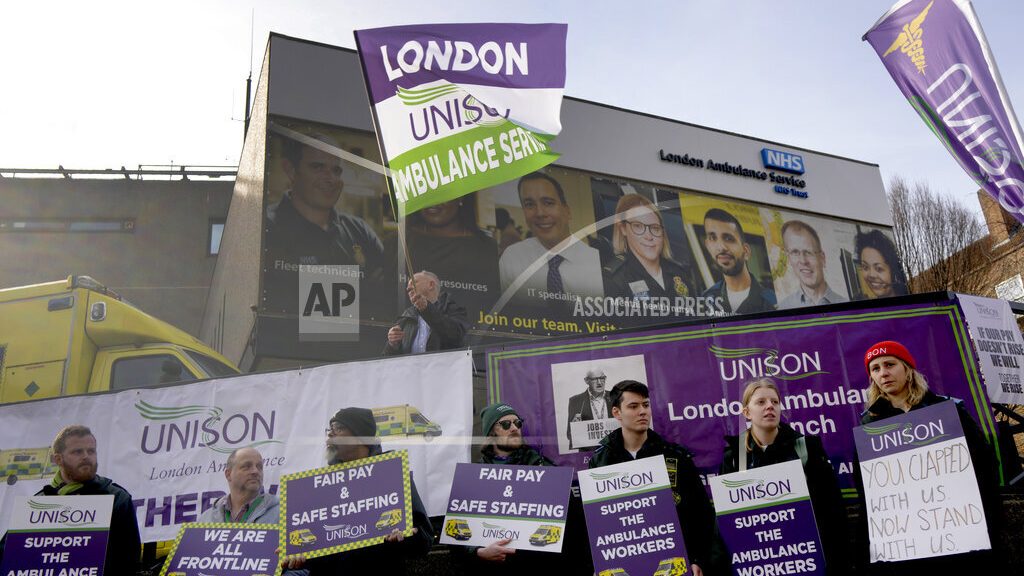Thousands of ambulance workers across England’s five regions – London, Yorkshire, the South West, North East and North West – went on strike today due to a pay dispute with the government.
Strikes will not impact serious and life-threatening emergencies, such as cardiac arrests. However, less urgent emergencies will have a harder time receiving ambulances.
About 15,000 members of Unison, the union representing the ambulance workers, walked out this morning, with officials warning of escalating actions within the coming weeks if there is no progress. Unison is balloting another 10,000 of its ambulance members in England for industrial action, so any further strikes could be the biggest yet for the union.
Union officials think the Government believes support for the strikes will fall, but they say the opposite is happening.
Sarah Gorton, the head of health in Unison, said there was a “gap” between what Prime Minister Rishi Sunak and other ministers were saying in public about having “constructive talks” with unions, compared with what was actually happening. She said that she believes the government is waiting for the next pay round, which is not expected for months, rather than trying to deal with the current dispute.
Unions representing ambulance workers and physiotherapists want above-inflation pay rises, but have not specified a figure.
The government says the demands are unaffordable, and that pay rises are decided by independent pay review bodies.
The average salary for ambulance staff in England was £46,643 for April 2021 to March 2022, according to NHS Digital.
Workers classed as support staff – such as ambulance technicians and non-emergency ambulance drivers – received £29,139 on average, of which £7,842 came from extra payments.

